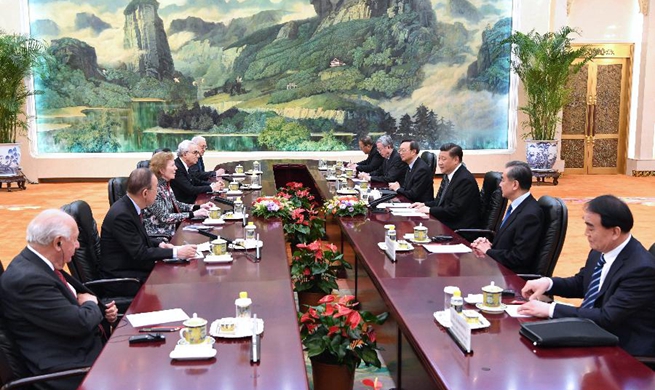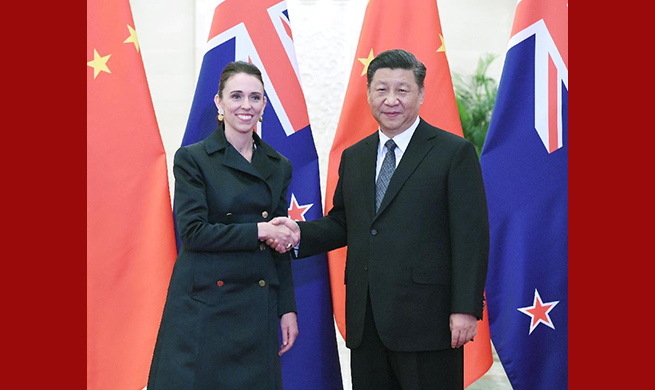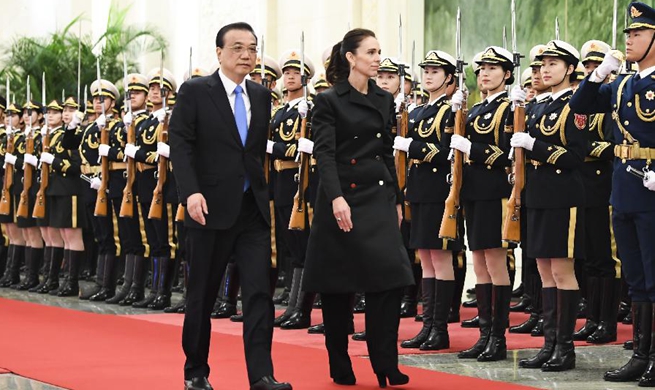ANKARA, April 1 (Xinhua) -- Turkish President Recep Tayyip Erdogan's party saw a serious blow as losing the largest city of the county, Istanbul, and capital Ankara, which might be seen as a warning for the government, experts said.
The People's Alliance, formed by the ruling Justice and Development Party (AKP) and Nationalist Movement Party (MHP), has lost its position compared with the general elections on June 24, 2018, said Deniz Zeyrek, political columnist of Daily Sozcu.
Against an alliance led by the AKP, opposition parties have also come together in a rare unity in Turkey. The main opposition Republican People's Party (CHP), allied with nationalist Good Party, won the race for municipalities of the big metropolis: Istanbul, Ankara, Izmir Antalya, Adana, along with Mersin.
The CHP took over the capital after 25 years, which was governed by the ruling party AKP since it came to the rule. The party also won landslide victories in coastal Aegean and Mediterranean provinces.
The ruling party took the lead in 16 metropolitan municipalities and 24 other provinces, according to unofficial results.
The AKP almost fell behind nearly 500,000 votes compared with parliamentary elections in 2018. The difference between the People's Alliance and the Nation's Alliance of the opposition in June elections was around 20 percent, but it has now decreased to 15 percent.
The economic crisis negatively affected the ruling party in the elections, Zeyrek said, elaborating on the failure of the AKP in big cities.
Sunday's elections were largely seen as a test for Erdogan's popularity amid an economic downturn. In his first assessment on Sunday night, the president described the reason for not being able to achieve desired results in some cities as an inadequacy to explain themselves to the nation.
"As of tomorrow morning, we will start finding and making up for our shortcomings," he added.
Soaring inflation and unemployment have seriously reduced consumers' purchasing power. Erdogan also pledged to make economic reforms to sort out the problems facing the country after local elections.
Abdulkadir Selvi, the columnist of Daily Hurriyet who is known as a prominent insider of the AKP, also believes that Turkish voters "have given a warning to the government but without causing a major instability." The electorate also delivered a message to the government for its displeasure on deteriorating economy in Turkey, according to the columnist.
Selvi noted that majority of Kurdish voters lent support to the CHP in the local elections, as one of the determinants of the opposition's triumph in Istanbul.
Pro-Kurdish People's Democratic Party (HDP) in its election campaign did not run candidates in some crucial provinces in the west, including Istanbul, as a tactic to weaken votes of the ruling party, which in its nature provided indirect support to the opposition's Nation's Alliance.
The HDP won the race in seven cities in the southeast but lost some strongholds to the ruling party. The government previously had replaced elected HDP mayors with government-appointed trustees for alleged links to the outlawed Kurdistan Workers' Party (PKK).
Surprisingly, the HDP had to hand over Tunceli province municipality to Communist Party of Turkey (TKP), a first-ever success for the party in Turkey.
According to unofficial results by state-run Anadolu Agency, Mansur Yavas, the CHP candidate, has won the top post in Ankara. The AKP still holds a majority of Ankara's 25 districts.
Chief of Turkey's election watchdog announced on Monday that the opposition CHP's candidate for Istanbul Ekrem Imamoglu was ahead of the AKP's Binali Yildirim by around 28,000 votes.
Losing Istanbul has also a symbolic defeat to Erdogan since he started his political career and served as mayor in the 1990s, and then formed the AKP.
"The AKP, which knows how to take lessons from election results and does not make the same mistakes in next elections, can review some of the policies with these results," Zeyrek said.
"The AKP can make self-criticism about their rhetoric, which is a polarizing discourse, and the situation may change in the new period," he added.

















